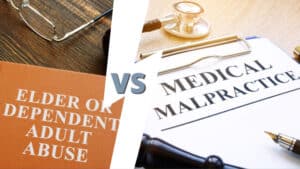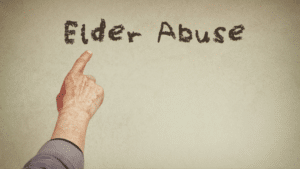
Tara W. from Tiburon asks, “My grandmother is in a nursing home. She is bed bound and can’t use her legs. They don’t get her out of bed or change her adult diaper regularly and she has developed two large sores on her bottom. It’s not the best place but it is all we can afford. What rights does she have and what can I do to hold them responsible for not caring for my Grandma?”
Tara, unfortunately, as our society ages as a group, more and more facilities are springing up in the elder care business. While many are caring and reputable, many are understaffed and nothing more than warehouses for the elderly.
The Elder and Dependent Adult Civil Protection Act (“EADACPA”), codified at Welfare and Institutions Code 15600 et seq., reflects the Legislature’s recognition that persons age 65 and older, or those disabled adults who are entirely dependent on others for their basic and daily needs, are a disadvantaged class worthy of heightened protection.
The Legislature recognized that it is an important state responsibility to protect elders and dependents from abuse and neglect. EADACPA affords heightened remedies to encourage private enforcement of the laws, including compensation for a victim’s pain and suffering, attorney’s fees, litigation costs, and punitive damages. Welfare & Institutions Code § 15657.
A “Dependent Adult” is defined as “any person between the ages of 18 and 64 who resides in this state and who has physical or mental limitations that restrict his or her ability to carry out normal activities or to protect his or her rights, including, but not limited to, persons who have physical or developmental disabilities, or who physical or mental abilities have diminished because of age.” Cal.Welf. & Inst. Code § 15610.23(a).
The law further defines “dependent adult” to include any person between the ages of 18 and 64 years who is admitted as an inpatient to a 24-hour health facility. Cal.Welf. & Inst. Code § 15610.23(b).
Abuse of an elder/dependent means either (A) physical abuse, neglect, financial abuse, abandonment, isolation, abduction, or other treatment resulting in physical harm or pain or mental suffering or (B) deprivation by a care custodian of goods and services necessary to avoid physical harm or mental suffering. Abuse of an elder means “the negligent failure of any person having the care or custody of an elder or a dependent adult to exercise that degree of care that a reasonable person in a like position would exercise.”
“Neglect” is defined under Cal. Welf & Inst. Code Section 15610.57 as including; “failure to protect from health and safety hazards.” “Abuse” is defined as “the negligent failure of any person having the care or custody of an elder or a dependent adult to exercise that degree of care that a reasonable person in a like position would exercise.” Cal. Welf & Inst. Code Section 15610.57.
To recover the enhanced remedies under EADCPA, including punitive damages, a plaintiff must prove by clear and convincing evidence that, 1) the defendant is liable for physical abuse, neglect or financial abuse (as those terms are defined by the act) and, 2) that the defendant is guilty of recklessness, oppression, fraud or malice, in the commission of that abuse.
Oppression, fraud and malice involve intentional, willful, or conscious wrongdoing of a despicable or injurious nature, whereas recklessness involves a deliberate disregard of the high degree of probability that an injury will occur, rising to the level of a conscious choice of a course of action with knowledge of the serious danger to others involved in it.
Any person or organization (not just victims or family members) can file a complaint about a nursing home with the Licensing and Certification Division of the California Department of Public Health (DPH). The DPH SF office is located at 150 North Hill Drive Suite 22, Brisbane, CA 94005. Phone number; (415) 330-6353.









